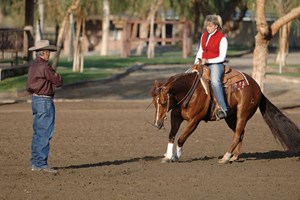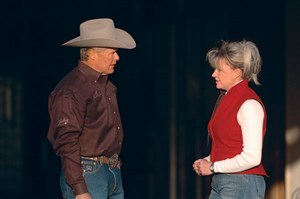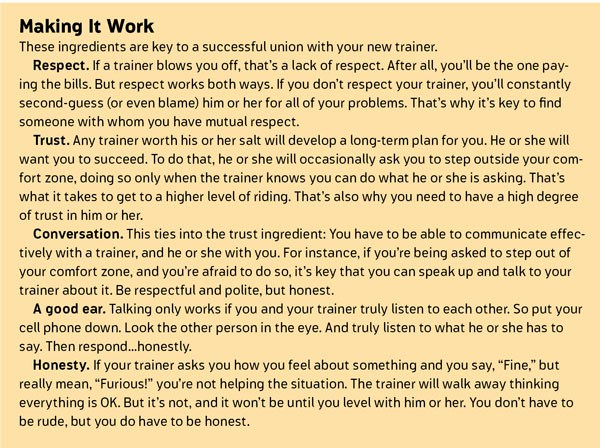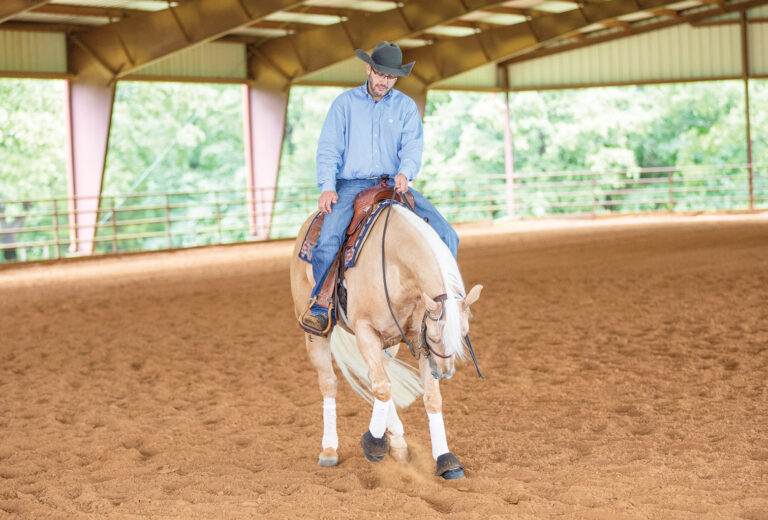I once tried to save money by building my own hotrod, rather than hiring a pro to help me, or to help me find one that was ready to go. The result? I ended up struggling for three years to build it, and spending twice the money it would’ve cost me to either get professional help or have a pro help me buy a ready-made car. (I also lost money when I sold the one I built.)

What’s the Point?
Why the hotrod anecdote? Because I often see people try to do the same thing with horses. Rather than hiring a professional to help them train and/or find a horse appropriate to their goals and abilities, they strike out on their own. And often have results similar to mine with the do-it-yourself car. Not to take away from those who are able to find success on their own, but many others only end up frustrated. They spend years and excess dollars trying to get the horse to a point at which they can enjoy him (if they can ever get him to that point).
Working with a good pro doesn’t take away from your horse-training or horse-shopping experience. In fact, it can enhance the experience—and help make for a successful outcome.
Find the Right Fit
Keep in mind that the relationship between a customer and a trainer can be as complicated, fun—and at times, difficult—as a marriage. So I advise you not to “marry” the first trainer you come across. Instead, treat your search as though you’re trying to find your perfect “match.”

How do you do that? Here are some tips for finding Mr. or Ms. Right (Trainer).
Stop, Look, Listen
1. Use association resources. If you want to do Paint events, start with professionals within the American Paint Horse Association (APHA). If you want to do Quarter Horse events, go to the American Quarter Horse Association (AQHA). Do likewise for other breeds if they interest you. Event associations are good resources as well. Associations generally have professional horsemen’s groups or trainer lists. For instance, AQHA can help recommend someone in your state and chosen event.
Check out Events
2. Go to an event or show that features your chosen activity. For instance, if you want to train your horse to be good on the trail, go to an organized trail ride in your area and ask around. Tell people that you’re looking for a reputable pro who can help you with your horse. Don’t ask just one person; ask as many as you can. Keep track of the folks who get consistent thumbs up; they’re the ones you want to talk to. If you hear consistently about people to avoid, pay attention. Then “vet” the names with the breed association, farriers, veterinarians, and other trainers in your area.
How Do They Treat Their Horses?
3. Study how the trainer treats his horses…and humans. When you get a short list of names, observe how each trainer works with his or her horses at a show or event. Ask yourself the following questions.
• How does the trainer care for his or her horse, mentally and physically? The horse will tell you. Is he relaxed, fit, slick, and turned out beautifully? Or is he scraggly, thin, anxious, and/or resentful, with dirty tack? A trainer whose horses are meticulously cared for is likely to be meticulous about all aspects of his or her program. Someone whose horses look scared and/or dirty is someone to avoid. • Does he or she put too much pressure on a horse? Does the horse look confident? Or is his head in the air, his eyes bugged out, and his face tense with anxiety and/or fear? That’s too much pressure. Cross him or her off your list.
Pay Attention
• How does the trainer handle his or her customers and staff, if applicable? How a trainer handles the humans around him or her can give you terrific insights into how he or she may handle your horse—and you. Is it with care and respect? That’s a good thing. If not, that’s a bad thing.
• How does he or she solve a problem? Maybe the horse is fresh, is spooky, or lacks focus. Perhaps it’s anticipating a cue. Does the trainer handle it confidently, calmly, and smoothly, without a fight? Or does he or she get into a battle with the horse, such that things go from bad to worse? The former is a good thing. The latter is a sign that the trainer is one to avoid.
• How are his or her stalls and trailer maintained? Find out where the trainers you are interested in are stalled at the show or event. (Or, drop in at his or her barn, if possible.) That’ll tell you a lot about a trainer’s management and his or her attention to detail. Are the stalls clean and well bedded? Do the horses have fresh, clean water? Are the aisles clear and organized? If so, that’s a thumbs-up. If the stalls are dirty, and the aisles cluttered and unorganized, that’s a “no!”

The Little Things
Try, too, to check out his or her rig. A trainer’s rig can say a lot about his or her program. It doesn’t have to be fancy, but if it’s clean and in good repair, that’s generally a good sign that the rest of the business will be, too. If not, keep looking.
The last word: Once you’ve narrowed down your list of potential trainers, set up a time to discuss your budget and goals with each of them—before you hire. This is a great way to determine whether a trainer will be someone you respect, trust, and can communicate with. (For more information, see “Making It Work,” above) When you finally find someone with whom you click, congratulations! Now listen to his or her advice. After all, that’s what you’re paying for.






